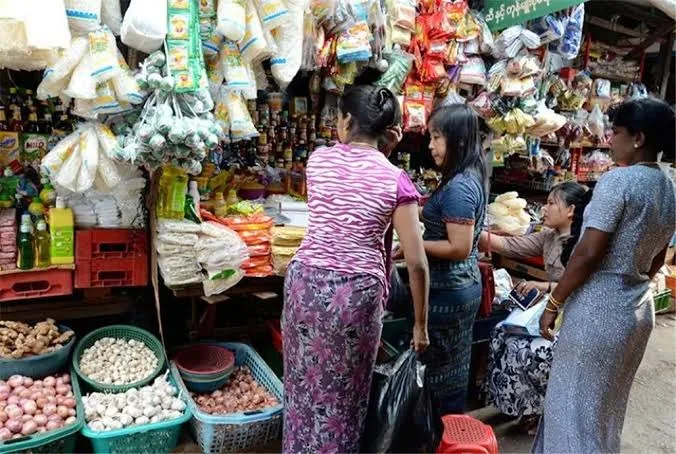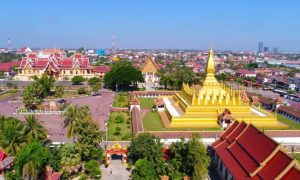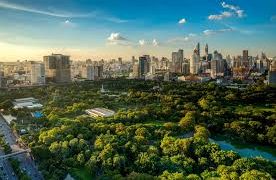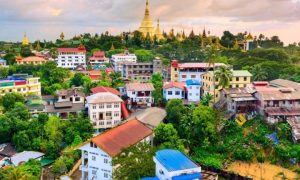worldwideimmigrantsWith more and more diversified choices, Myanmar is attracting many people who want to "live in light assets" or "retire" with its relatively low cost of living and rich cultural atmosphere. However, some people question: Is life in Myanmar really cheap? Are daily expenses, medical care and children's education expensive? Today, we're going to find out!Myanmar ImmigrationThe cost of living helps you see the real picture and decide if this land of Buddha is the right place for you to live for a long time.
I. Rental costs: from a hundred dollars to thousands, depending on location and standards
In Myanmar, the price difference in rent is mainly affected by the city, location and condition of the house. Take Yangon as an example:
-
Local apartments (simple): Monthly rental of approximately $150-$300
-
Newer apartments (with air-conditioning and water heater): Monthly rental of approximately $400-600
-
Townhouses or serviced apartments (for expats): Monthly rent ranges from $700-$1200
If you choose to be in Mandalay, East Branch or other small or medium-sized cities, the price can be further reduced by 20%-40%.For single travelers or retired life, a two-bedroom set of $200 can already meet the basic living needs.
Tip: Landlords usually take cash only, and lease terms are monthly for shorter periods, and negotiable for longer periods (six months or more).
II. Daily living expenses: affordable and diverse local consumption experiences
Daily life spending in Myanmar is lower than in most Southeast Asian countries. The following is an approximation of daily expenditures (using US$1=Kyat 2,100 as a reference):
-
One meal at a local restaurant: 2-3 dollars
-
Supermarket Ingredients of the Week: $15-$30 (mainly local fruits and vegetables, rice and noodles)
-
Web + Phone: Approximately $10-15 per month
-
Miscellaneous utilities: $20-$50 per month (depending on level of utilization)
If you're used to Western-style spending, such as drinking Starbucks, imported food, and international supermarket chains, overall spending goes up around 40%.
Life Advice: Local food markets are not only cheaper, but also offer fresh and natural ingredients, perfect for those who love to cook.
III. Medical costs: basically affordable, complex treatments recommended for neighboring countries
Public healthcare resources in Myanmar are stretched, medical equipment is relatively outdated, and doctors' English language skills vary, so expats are more likely to go to private hospitals or clinics.
-
General outpatient registration fee: 5-10 dollars
-
Routine medical check-ups (private hospitals) US$ 60-120
-
Minor surgery (e.g., dental treatment) $100-$300
-
Critical illness/first aid: Recommended transfer to Chiang Mai or Bangkok, Thailand for treatment
Currently there are several relatively reliable international medical institutions in Yangon, such as Samitivej Myanmar and Pun Hlaing Hospital, where prices are high but the quality of service is more guaranteed.
Medical advice: Migrants are strongly advised to purchase international health insurance, especially family migrants or those with underlying medical conditions.
IV. Cost of education: high price of international schools, local education to be improved
Education is an important expense that cannot be ignored by families moving to Myanmar with children. The education system in Myanmar is still in the developmental stage and the quality of education in public schools is generally low, with the language of instruction being Burmese.
Most expatriates choose international or private schools at the following costs:
-
International kindergarten: Approximately $2,000 - $4,000 per year

-
International Primary School: Approximately $3,000-$7,000 per year
-
British/American/Singapore system international schools: Ranges from $8,000-$15,000 per year
Representative international schools include ISY (International School of Yangon), YIS (Yangon International School) and others.
Educational Recommendations: If you have a limited budget and want to guarantee the quality of teaching, consider a combination of online education or on-site tutoring in neighboring countries (e.g. Thailand).
V. Summary:Myanmar ImmigrationWho is suitable for long-term living?
Good for the crowd:

-
Singles or couples who want to live low-cost and pursue a slower pace of life
-
Digital nomads, telecommuters
-
Entrepreneurs who intend to make a small investment or open a store
-
Retirees (especially those unaccompanied by children)
Not a good fit for the crowd:
-
Families highly dependent on the quality of health care and education
-
People who need frequent international transportation and business contacts
-
Those who are unable to adapt to hot and humid climates or have language barriers






